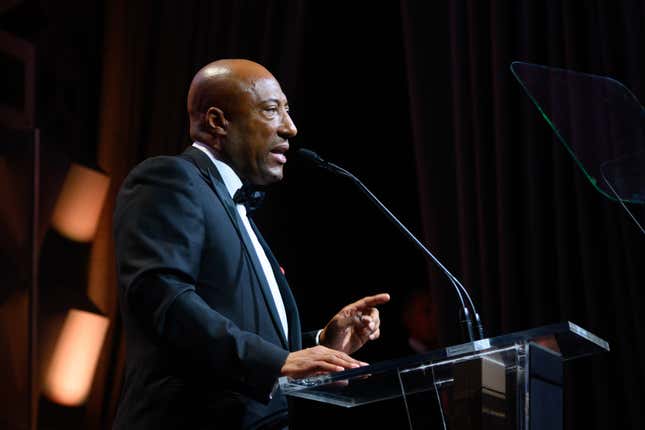
Byron Allen’s racial discrimination lawsuit against the Comcast Corporation, the world’s second-largest telecommunications conglomerate, lands in front of the Supreme Court Wednesday in a case that could greatly impact how future discrimination suits are brought forward.
Allen, head of Entertainment Studios Network (ESN), filed a $20 billion lawsuit against Comcast in February 2015, alleging that the telecom giant refused to carry his cable channels in part because they’re black-owned. Allen, in his original complaint, alleged Comcast executives gaslit him and made racist statements during their negotiations. As Variety reports, Comcast rebuffed Allen’s claims, saying their decision to not run his seven lifestyle cable channels was strictly business-based: there was simply not enough audience demand for the ESN channels. Further, Comcast countered that Allen is an opportunist, suing major corporations like itself in order to win fees.
Allen’s allegations extend outside of Comcast, however. Variety reports:
The lawsuit further accuses the NAACP and Rev. Al Sharpton’s National Action Network and other civil rights figures of conspiring with Comcast to “whitewash Comcast’s discriminatory business practices” by supporting the company’s 2011 acquisition of NBCUniversal, among other allegations.
But the matter has evolved into something much larger than why Comcast made the decision to decline Allen’s channels. At the heart of this case is a Reconstruction-era statute barring discrimination on the basis of race, color and ethnicity when making and enforcing contracts. Allen is arguing that Comcast violated that law in considering race at all—even if there were other factors involved in the decision. Comcast counters that the law applies to decisions in which race was the sole factor.
The case comes before the Supreme Court because the complaint was initially dismissed; that decision was then overturned by California’s Ninth Circuit Court of Appeals. “Plaintiffs needed only to plausibly allege that discriminatory intent was a factor in Comcast’s refusal to contract,” the three-judge panel ruled.
The decision before the Supreme Court isn’t to determine whether Comcast acted in a racially discriminatory way, but whether Allen’s case can even go to trial.
NBC News’ legal analyst Maya Wiley lays out why this case is so important to future discrimination suits:
The question here, then, is how much discrimination is enough to give someone their day in court. Comcast argues that the plaintiffs should have to show that race was the only motivating factor in its decision in order to go on with their case, and that they can’t; the plaintiffs say that they should only have to show that race was at least part of the motivating factor in refusing to carry ESN’s channels and they can.
In practical terms, then, Comcast is fighting to deny the National Association of African American-Owned Media the opportunity to question witnesses and get documents that would give the court enough evidence to decide if plaintiffs can go to trial.
As Wiley writes, a brief filed in September by Allen’s legal team alleges “a Comcast executive told ESN that they refused to carry its stations because ‘We’re not trying to create any more Bob Johnsons,’”—a reference to BET’s founder.
Allen recently got some high-profile support from Illinois Rep. Bobby Rush, who wrote a letter to Comcast CEO Brian Roberts, saying “simply put, it is my belief that the Comcast Corporation needs to be broken up.”
“Comcast’s decision to ignore the memoranda illustrates a careless disregard of minority communities and their interests,” Rush wrote, according to Bloomberg.

